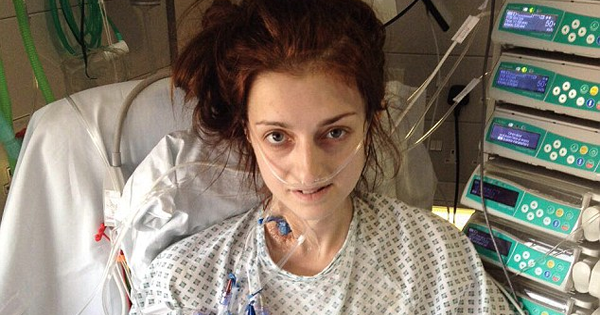When 24-year-old Stephanie Jennings began to experience a bad sore throat, she went to her general physician for treatment. Her physician didn’t seem to agree with Jennings’ concerns and sent her home.
Jennings ended up returning to her doctor another three times as her symptoms persisted and worsened over time. She could barely touch solid food because her throat hurt so badly, and her weight had taken a significant plunge. At this fourth appointment though, her physician’s only response was to call Jennings’ condition as a “common cold.”
A few days later, Jennings could barely even drink water, her throat was so pained. But even then, her doctor only prescribed her an antibacterial mouthwash. Jennings, desperate to find relief, visited a number of other doctors at the same time – but not one of them prescribed her antibiotics.
Jennings recalls, “At one point, I had tears in my eyes and was saying: ‘Please, please, please, I really need something to help me.” But she was always turned down.
After another few days passed, Jennings continued to feel her health deteriorate. At one point, she called her husband, Michael, home from work because she felt so horrible. That was when Michael decided to take matters into his own hands.
He took Jennings to the hospital where she was finally properly diagnosed. Jennings had sepsis, a life-threatening infection that had been caused by, in Jennings’ case, pneumonia.
When the body attempts to fight sepsis, the immune system is overloaded, causing blood pressure to drop and drastically reduce the amount of blood that gets circulated to the brain, heart, and kidneys.
The doctors at the hospital told Jennings that if she’d come in any later, there was a chance she may not have survived. But Jennings did gradually recover from her sepsis after finally receiving the antibiotic treatment she had needed from the very beginning.
Two months later, however, Jennings had to return to the hospital: the antibiotics she’d been given to treat her sepsis had inflamed her colon and caused ulcers to form. Because she’d had to take such heavy, intense doses of antibiotics by the time she’d gone into the hospital, Jennings had severely damaged her colon and developed ulcerative colitis. At this point, her only treatment option was to have her colon removed.

Jennings’ health now, a year after having her colon removed, has stabilized. But she continues to be upset about how her general physician initially handled her medical condition. If she’d been able to receive antibiotics in those first five appointments, her health wouldn’t have taken such a dramatic downturn.
She suspects that England’s new, tighter restrictions on prescribing antibiotics was what cause her case to spin so wildly out of control. “I understand doctors have to reduce the amount of antibiotics they give out, but I nearly lost my life… After five visits to a GP, surely someone should have been thinking: ‘This is not right.’”





